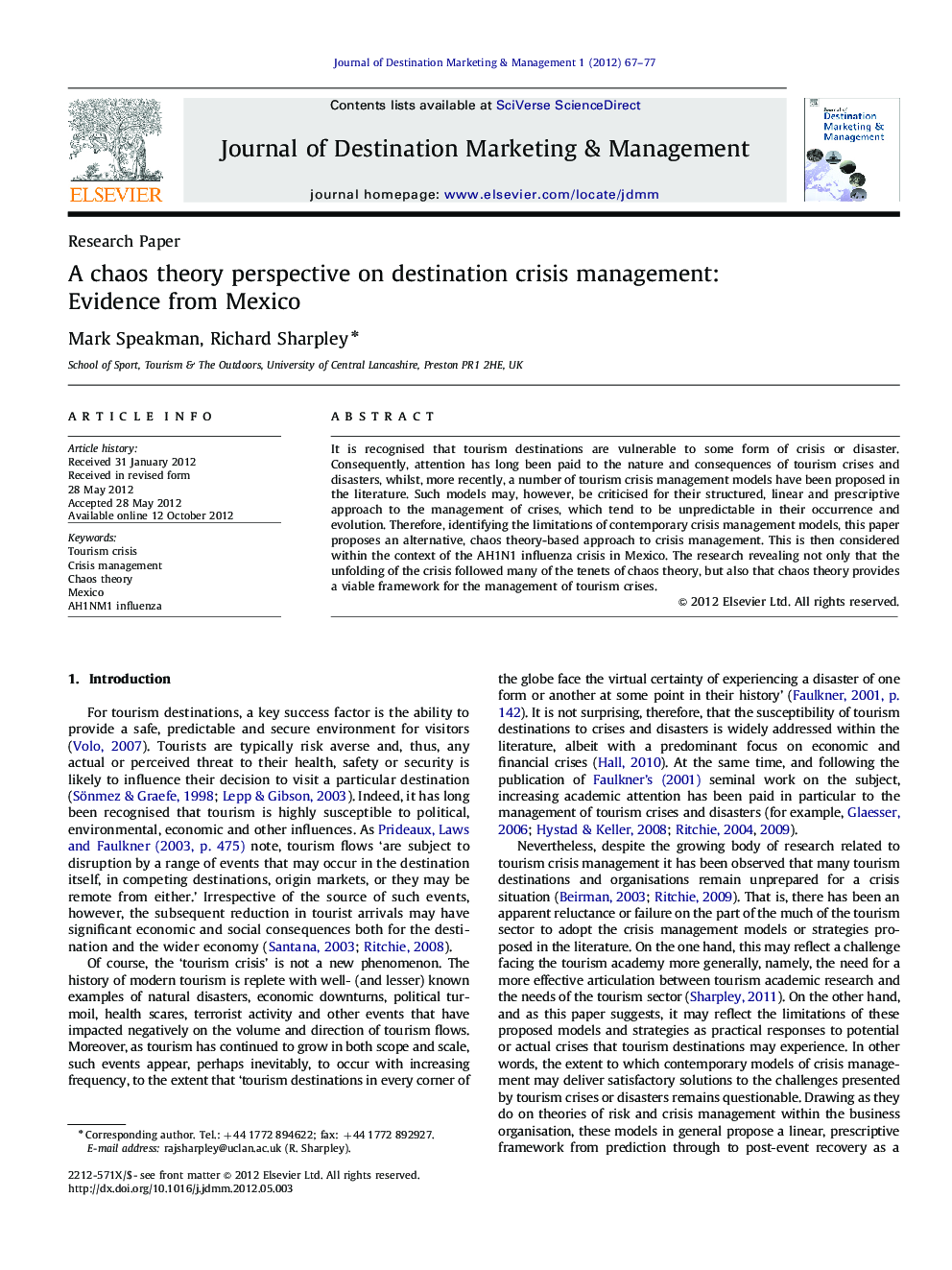| Article ID | Journal | Published Year | Pages | File Type |
|---|---|---|---|---|
| 1011126 | Journal of Destination Marketing & Management | 2012 | 11 Pages |
It is recognised that tourism destinations are vulnerable to some form of crisis or disaster. Consequently, attention has long been paid to the nature and consequences of tourism crises and disasters, whilst, more recently, a number of tourism crisis management models have been proposed in the literature. Such models may, however, be criticised for their structured, linear and prescriptive approach to the management of crises, which tend to be unpredictable in their occurrence and evolution. Therefore, identifying the limitations of contemporary crisis management models, this paper proposes an alternative, chaos theory-based approach to crisis management. This is then considered within the context of the AH1N1 influenza crisis in Mexico. The research revealing not only that the unfolding of the crisis followed many of the tenets of chaos theory, but also that chaos theory provides a viable framework for the management of tourism crises.
► Critiques contemporary models of tourism crisis management. ► Applies chaos theory to the context of tourism crises and disasters. ► Identifies and critiques responses to the Mexican AH1N1 crisis. ► Evidences the limitations of contemporary approaches to crisis management. ► Offers a chaos theory perspective on tourism crisis management.
